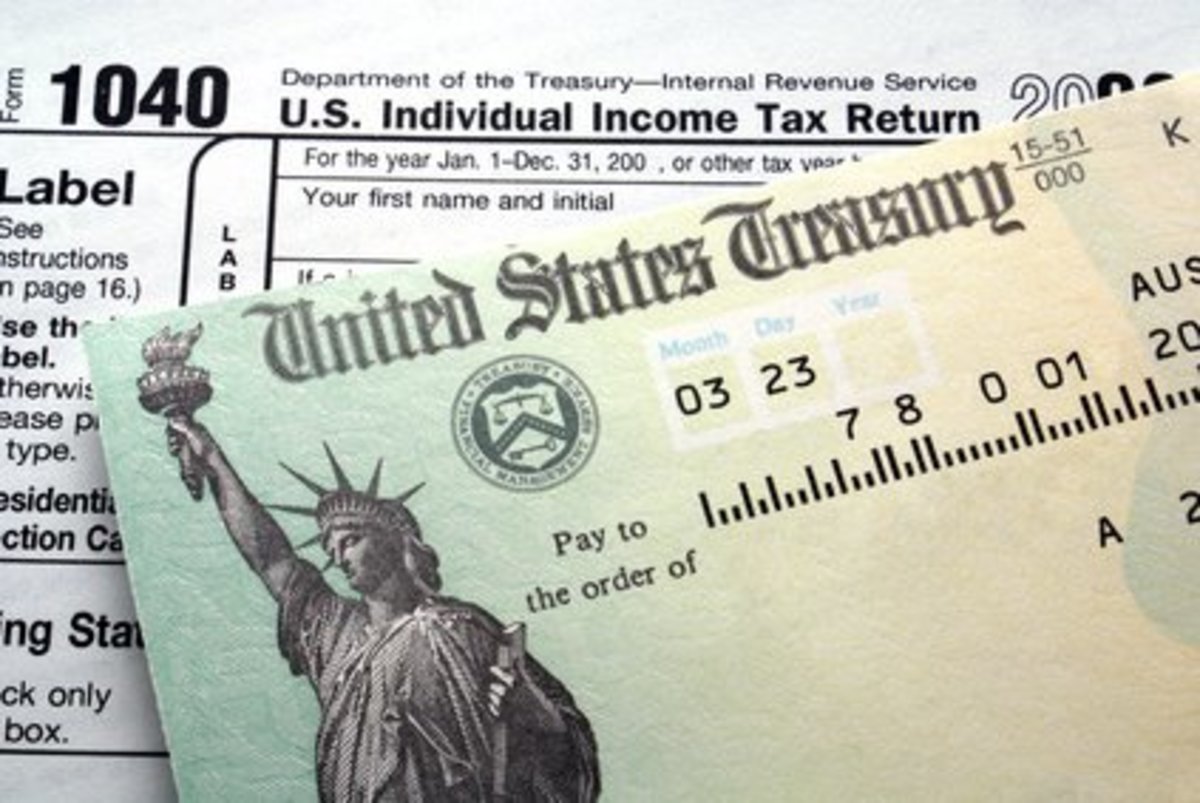Become a Freeman-on-the-land
So You Want Your Freedom, Claim It!
In my research for common law remedies of which I wrote a hub about, I've come across a movement known as the Freeman-on-the-land. I hadn't heard the term in over a decade. It has been since I knew a fellow who had committed to this movement, it's ideology, and common law instruments.
A prominent member of this society Robert Arthur Menard of Canada seems to be an authority on the subject so I will quote him in defining this. "A freeman-on-the-land is a human being in a common law jurisdiction who has revoked consent to be represented and thus governed and therefore is not subject to any statutory restraints, by-laws, ordinances...” The claim is that statutes are adhered to by consent. You'll see their name written something like this- John-Robert: Doe.
They do this because of something in Black's Law dictionary. It defines a person as a “legal fiction.” or a “corporate entity.” The freemen-on-the-land use their given name, not the first name. They use their family name, not their last name. That is the person, not the human being.
The people of the freeman-on-the-land movement drive without a license, insurance (some of them anyway. If you get in an accident, you're screwed.) They also run businesses without a business license. To apply is to ask for permission. They can't give you permission to do something that is unlawful to do right? I've done some checking. The Freeman are correct. They also claim that it is the social security number that makes you a willing party to a contract, which gives the force of law to the statutes that we become subject to. In theory, we are born free, then give it up when we apply for a social security number.
I mentioned the drivers' license before. They get away with driving without a license through the driver's license statutes. It's written right into the act itself. No one actually reads the motor vehicle statutes before they apply for the license. I didn't until recently. In Colorado where I drive, the law states that a driver is one who moves a motor vehicle. A motor vehicle is defined as a registered automobile. A driver is one who travels in a motor vehicle for commercial use on the highway. I have come to the conclusion that the freeman are right again. Follow my chain of logic for a minute here.
Your automobile is not registered, you're not moving it for commercial gain, and you are not on the highway, you're just in time. If an automobile is not registered, it is not a motor vehicle. If you are not moving the automobile for commercial gain, you are not driving. If you are not on the highway, again, you are not required. Of course, it just easier for me to keep a license. Try telling the cop who pulls you over to listen to you while you read him the law. He'll just put you in cuffs. Don't be upset with the cop. He was told to charge everyone who does not provide a driver's license, except illegal aliens of course, but that's another matter. Since it is so difficult to move an automobile without one, it's just easier to have a license. Many of these freeman get arrested over and over until finally the authorities just give up. They are right, but is it worth it?
The social security number is key in this as well. I called the social security administration. They himmed and they hawed. They double-spoke. They refused me. Finally, after I called them back and started reading the social security act of 1935 to them, they gave me the form. I didn't want to fill it out, but just to look at it for investigation purposes of this hub. This form was to abandon a social security number. Yes, the freeman are correct on this point again. Of course, if you become disabled, you won't get any of the money you paid into it.
Now I would like to go into some of the lawful instruments the freeman-on-the-land use. They take the old common law Claim of Right. First, You send notice to all parties who would normally be interested. I'll give an example. It's called “notice of understanding and intent.” You tell all law enforcement agencies “I understand you cannot give permission for something it is already lawful to do such as moving an automobile.” Then you give them a number of days to respond. Apparently they never do. Then you send them a “claim of right.” This is a powerful document. No two people can have a claim of right on the same property. If you claim the right to domicile at a certain geographical location, the forest service, BLM, or other public agency can't claim the right to keep you out. They just don't answer to it. And the certain legal maxim I once heard “If you don't object, you acquiesce” seems to ring true.
The Maoris of New Zealand are doing this. Their land was stolen just like the Native Americans had done to them here in the United States. They are using a claim of right to domicile, hunt, and fish on the land that was stolen from them generations ago. There are abuses as well. I read in Reuters about a couple of New Zealanders who use a claim of right as a defense when they destroyed a spy base down there. I don't think it will stick in this case though. You see no two people can claim rights to the same property. The owner of the spy base had more right to it than the vandals, and under common law, you can't arm anyone, steal, destroy property, or use fraud in your contract.
What a freeman-on-the-land can't do is simple. They cannot steal, harm, or use fraud in their contracts. In my research of common law proceedings and their results, I've found a common law court will punish much more harshly than a de facto court. There are no statutory restraints in that venue., including the famed statute of limitations.
Now I will explain about the fellow I knew that went through all of this process about 18 years ago. Out of respect for his family I will use a pseudonym for him. I'll call him Sam. Sam was very unhappy with the statutory courts and ignorant police (again, not their fault, the people in charge don't let them have this knowledge.) This gentleman was put into jail several times for driver's license violations. He had a wife, and several kids. The expense of fighting for common law jurisdiction and the constant confiscation of his classic 1960s car drained all of his resources. He went broke, lost his place to live, and wound up sleeping in the car with his family. The cops had his car towed again. He got some kind of claim of right to access his car at the impound lot which gave him the right to sleep there with his family. But it wasn't good for the children so broke, tired of fighting the cops and judges, with hungry children sleeping in the back seat, Sam took his own life.
This would be the reason why I haven't really gone through all of these steps and become a freeman-on-the-land. I mean if you've read the other hubs I've written, you would see that I do enjoy my freedom, and really don't like the government, but they make it so difficult to do this. Therefore you should take the story of “Sam” seriously. I know others who have done this recently. They seem happy, prosperous (especially since they don't file taxes,) and well adjusted individuals and families.
Links to Freeman-on-the-land
- http://www.youtube.com/watch?v=h09qq5RcDpY
Here is some kid, just any kid. It's proved that anyone can do this. I mean anyone. If you live in a common law jurisdiction, such as ANY of the former English colonies, you are a freeman-on-the-land that either has reserved ALL rights, or not! - YouTube - TheAntiTerrorist\'s Channel
The voice of reason. I am not Anti-Government. I am Anti CORRUPT Government. Aren't YOU? The New World Order, Globalisation, Unification, One World Government. Whatever you call it and whatever perspective you're looking at it from, it needs to be di - Robert-Arthur: Menard
Robert-Arther: Menard giving his philosophy after some 17,000 hours of law research.







